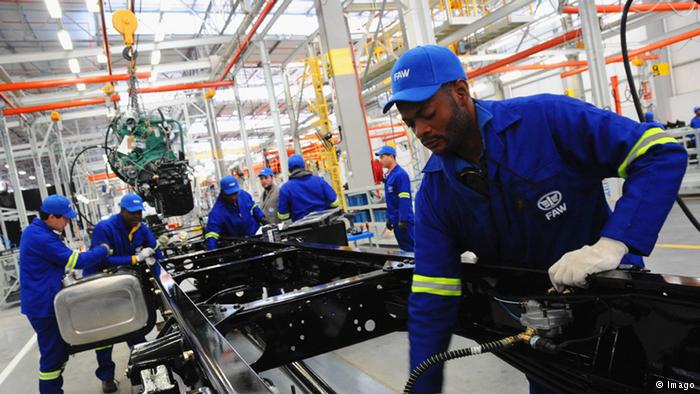Islamist violence and the spread of Ebola are serious new threats to Africa and its economy. Slow growth among Africa’s top trade and investment partners and falling commodity prices add to the continent’s difficulties.
Last year, Nigeria’s President Goodluck Jonathan came to Davos with half of his cabinet in tow. This year, Jonathan and most of his ministers are absent from the WEF – officially because of the upcoming elections at home. But with the terror group Boko Haram causing havoc in the northern part of the country, it’s hard to present Nigeria as an attractive place for investors.
The Central African Republic, South Sudan, Mali and parts of Kenya face similar security issues, while several countries in Western Africa are trying to contain the outbreak of the deadly Ebola virus.
In Davos, South African President Jacob Zuma tried to dissipate fears that Africa as a whole could be seen as unsafe for doing business. The continent was “relatively stable,” he insisted. “We believe that over the years, we have reduced the areas of conflict in the continent. It’s unlike what it was before,” Zuma said.
“There are issues that have arisen since the fall of (former Libyan ruler) Moammar Gadhafi in particular, because that tended to undermine the security in the northern part of Africa. Boko Haram is part of what happened there.”
Zuma added that the African Union was doing its best to solve these problems, and Rwanda’s President Paul Kagame agreed: “We have to get together, collaborate, and make sure that we sort out most of these problems,” Kagame said. “The problems are there, but they should not derail Africa’s journey to development and stability.”
Life under siege in Nigeria
John Coumantaros, group managing director of Flour Mills of Nigeria, a major player in Nigerian agribusiness, admits that he had to close some of his operations in northern Nigeria due to terrorism. “Life in the north-east is under siege,” Coumantaros said.
“But we are not stopping our investments anywhere else in Nigeria. We are moving full force forward. Don’t forget these terrorist attacks are aimed at disrupting people’s lives and livelihoods. We should not give in to that.”
Oscar Onyema, head of the Nigerian Stock Exchange, pointed out that Africa should not be seen as a continent of conflict again. “Most of the challenges that we are facing are quite isolated, in isolated pockets. And those pockets are not necessarily the geographies that drive African economy.”
Zuma said African countries should focus on developing their infrastructure and attracting private investors. One of the biggest challenges was to reduce the barriers to trade among African nations. “If we don’t have intra-African trade, if we don’t soften our borders, if we don’t increase the economy among ourselves, we are not going to succeed,” Zuma said.
Rwandan President Paul Kagame fully agreed, sitting next to Zuma on a panel in Davos. Both men insisted that last year’s furious diplomatic row between the two countries was unfortunate and “should not have happened,” as Kagame put it. Pretoria and Kigali had expelled diplomats in early 2014 over a conflict sparked by attacks on Rwandan dissidents in Johannesburg, but have since resolved the issue.
Lack of talent
Sunil Bharti Mittal, founder and chairman of Bharti Enterprises, an Indian conglomerate that invests heavily in African telecommunications and manufacturing, said he felt very welcome as an investor. But he added he was shocked by the lack of skilled labor there.
“Skills are not available in Africa. And if they are available, they are so expensive. People in Africa who have the necessary skills want European or American salaries.”
With close to a billion people in Africa, many of them young, massive investment was needed to increase the pool of talent available for companies, Mittal argued, thus adding yet another big point of the continent’s long to-do list.
FRENCH VERSION




